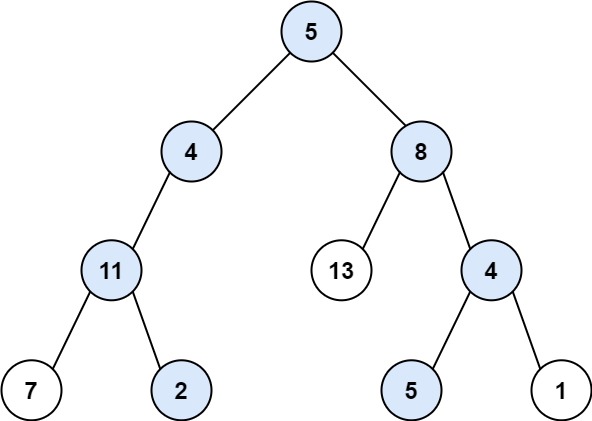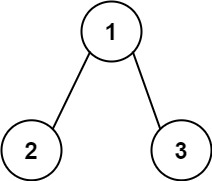113. Path Sum II

Description
Given the root of a binary tree and an integer targetSum, return all root-to-leaf paths where the sum of the node values in the path equals targetSum. Each path should be returned as a list of the node values, not node references.
A root-to-leaf path is a path starting from the root and ending at any leaf node. A leaf is a node with no children.
Example 1:

Input: root = [5,4,8,11,null,13,4,7,2,null,null,5,1], targetSum = 22 Output: [[5,4,11,2],[5,8,4,5]] Explanation: There are two paths whose sum equals targetSum: 5 + 4 + 11 + 2 = 22 5 + 8 + 4 + 5 = 22
Example 2:

Input: root = [1,2,3], targetSum = 5 Output: []
Example 3:
Input: root = [1,2], targetSum = 0 Output: []
Constraints:
- The number of nodes in the tree is in the range
[0, 5000]. -1000 <= Node.val <= 1000-1000 <= targetSum <= 1000
Solution
path-sum-ii.py
# Definition for a binary tree node.
# class TreeNode:
# def __init__(self, val=0, left=None, right=None):
# self.val = val
# self.left = left
# self.right = right
class Solution:
def pathSum(self, root: Optional[TreeNode], targetSum: int) -> List[List[int]]:
res = []
def go(node, curr, path):
if not node: return
if not node.left and not node.right and curr + node.val == targetSum:
res.append(path + [node.val])
return
go(node.left, curr + node.val, path + [node.val])
go(node.right, curr + node.val, path + [node.val])
go(root, 0, [])
return res